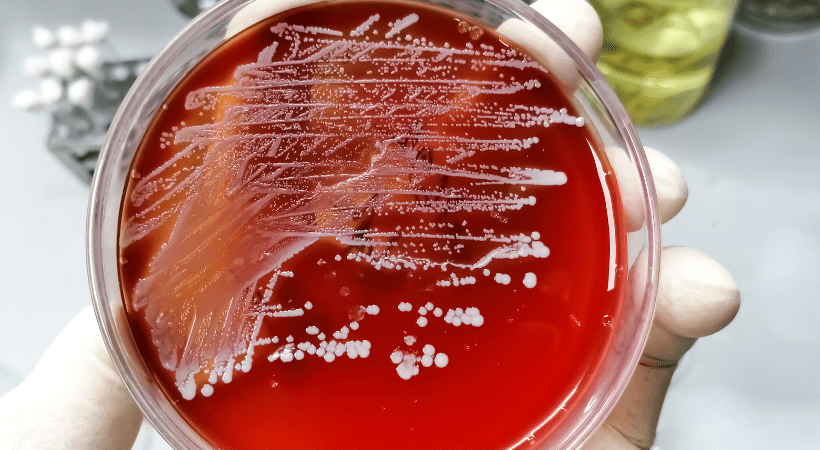From Farm to Fork: Why E. Coli Outbreaks in the US Sound the Alarm for Global Food Safety
From Farm to Fork: Why E. Coli Outbreaks in the US Sound the Alarm for Global Food Safety
Recent developments in the United States (US) have underscored the critical importance of maintaining high standards of hygiene and traceability within the food supply chain.

E. coli O157 is commonly associated with the contamination of meat from ruminant faeces and gastrointestinal contents. The range of food products potentially at risk extends beyond raw and undercooked beef and minced meat, to include raw milk dairy products such as cheeses and even fresh produce like salad leaves.
The ongoing concerns and headlines related to E. coli O157 in beef and beef products are highlighted in BBC report dated October 22. The report serves as a stark reminder that food safety in the meat industry, remains a matter of grave concern.
The human and economic toll of E. coli contamination is vividly depicted in this year’s award-winning documentary, Poisoned, which is based on Jeff Benedict’s book Poisoned: The True Story of the Deadly E. Coli Outbreak That Changed the Way Americans Eat. Both the documentary and the book explore the 1993 outbreak of E coli infections in the US, traced back to ‘beef burgers’ sold by fast-food chain, Jack in the Box. The book explores the ‘farm-to-fork’ supply system and the points in the system where failures led to the deaths of several children. The reoccurrence of E. coli outbreaks associated with meat products since, suggests that there may still be gaps in control and monitoring regimes in the US.
Implications for Great Britain (GB) and the European Union (EU)
Given the interconnected nature of the global food supply chain, and the fact that beef is approved for import into GB from the US (and the same applies for EU), questions naturally arise about the measures in place to prevent similar outbreaks here.

Firstly, for a country to be eligible to export meat to the EU or GB, their food safety control systems must be rigorously assessed to ensure they meet or exceed domestic standards for animal health, contaminant management, and microbiological safety. This is just the initial requirement, however.
Additional safety measures include product testing at the borders and ongoing surveillance by food businesses to ensure that imported goods are safe before entering the domestic market. While the EU’s Rapid Alert System for Food and Feed (RASFF) provides accessible data on food safety issues, the UK now receives only limited information from the system since Brexit.
Ensuring Safety from ‘Farm to Fork’
In GB and the EU, all stages and persons in the food chain, are subject to Regulations, controls and monitoring by enforcement authorities. These are called ‘Official Controls’ and are carried out at the Primary Producer level (the farmer) through to the traders, buyers, transporters, wholesalers, retails and restaurants.
These controls are implemented by various authorities in UK including; the Food Standards Agency (FSA) , the Animal and Plant Health Agency (APHA), Food Standards Scotland (FSS), Trading Standards Officers, Environmental Health Officers and Port Health Officers.
Food businesses themselves of course, go above and beyond these Official Controls. They must ensure by law that food they place on the market is not unsafe. They must also be able by law, to trace from where they obtained foods or ingredients, and to whom they sold them (This traceability does not include selling to consumers who will eat the food themselves).
Supply chain transparency must be a top priority for all food businesses.
Finally, the safety of foods is also affected by the instructions for use and storage given on food packaging and labelling. In the 1993 ‘Jack in the Box case’, one of the things that went wrong, was the failure to communicate to restaurant employees, that the internal temperature of the burgers when being cooked should be raised in accordance with new directions from Washington State.
Avoid Complacency
Although regulatory frameworks and quality controls in the EU and GB are designed to minimise harmful organisms and contaminants, recent incidents in the US serve as a reminder that we cannot afford to be complacent. Risks such as food fraud and financial pressures leading to less-than-ideal standards within meat processing operations continue to affect the food supply chain. Risks may also be exacerbated by increasing financial pressures on the regulatory bodies responsible for overseeing the supply chain. To this point, in June, Chris Elliott, Professor of Food Safety and Microbiology at Queen’s University Belfast and founder of the Institute for Global Food Security slammed “scandalous” cuts to Trading Standards resources as a major threat to food safety.
Maintaining vigilance and upholding rigorous standards at every level of the food industry is essential to protect public health and prevent future outbreaks.

Author: Rebecca Kaya
I have dedicated over 17 years' of my career to keeping end consumers safe. As a Regulatory Specialist, I help clients to have confidence in their compliance by providing practical advice across the food chain - from the point of primary production, to final product labelling.
Next reads
What’s Next for Food & Drink? Our Experts’ Predictions for 2026
The Peanut Diaries: School and Social Occasions
The Peanut Diaries: Navigating Social Events and Celebrations with Food Allergies
The Peanut Diaries: A Parent’s Journey to Uncovering their Child’s Allergy
Keep up to date with our latest insights
Subscribe to our mailing list to stay in touch with the latest news, insights and updates from Ashbury




